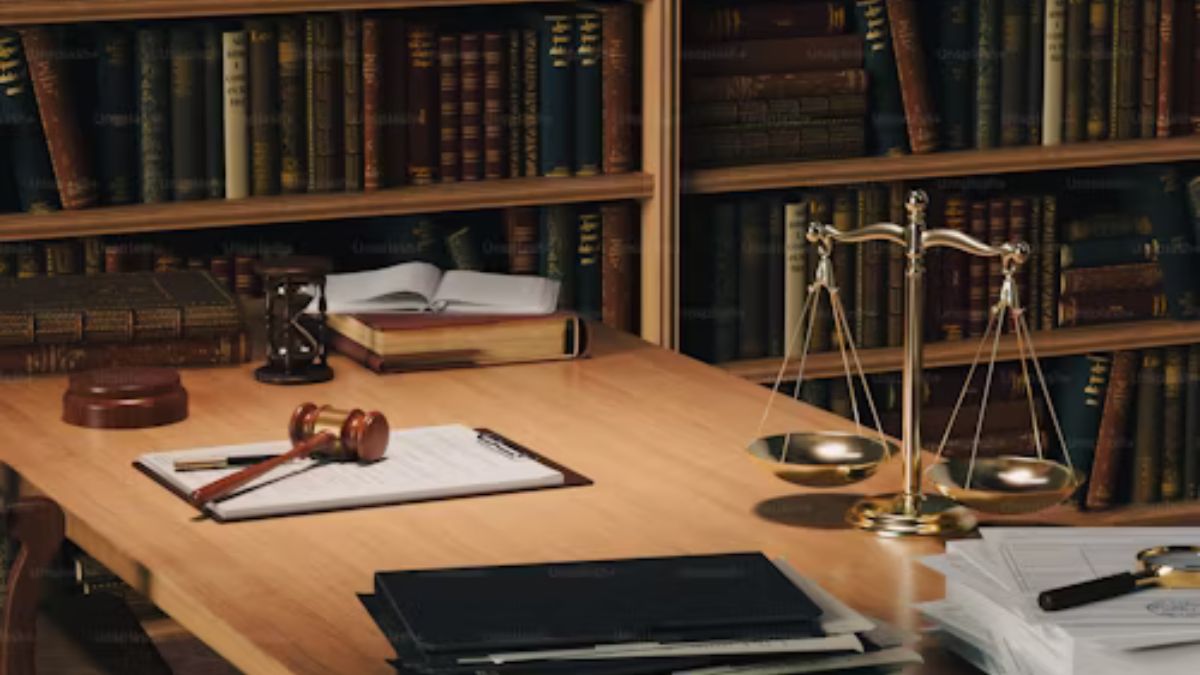LAW
Navigating the White Oak Global Advisors Lawsuit Landscape

In recent times, the financial world has been abuzz with discussions surrounding White Oak Global Advisors and their involvement in various legal matters. For those invested or interested in finance, understanding the intricacies of these lawsuits is crucial. This comprehensive guide aims to unpack the essential details of the White Oak Global Advisors lawsuit, providing clarity on its impact and relevance to stakeholders and observers alike. Throughout this post, we will explore the background of White Oak Global Advisors, the nature of the lawsuits, the parties involved, and the potential implications. Whether you’re an investor, a legal professional, or simply a curious mind, this article will equip you with the necessary insights to grasp the situation fully.
Understanding White Oak Global Advisors
A Brief Overview of White Oak Global Advisors
White Oak Global Advisors is a prominent investment management firm known for its expertise in providing private debt solutions to businesses. Established with a vision to support small and medium-sized enterprises (SMEs), the firm has carved a niche in the financial sector by offering tailored lending options. With a focus on fostering growth and stability, White Oak has gained a reputation for its strategic approach and dedication to client success.
The Firm’s Investment Philosophy
At the core of White Oak’s operations is its investment philosophy, which emphasizes risk management, thorough due diligence, and diversified portfolios. By leveraging its deep industry knowledge and experience, the firm seeks to identify opportunities that align with its clients’ objectives. This proactive approach has enabled White Oak to maintain a competitive edge in a dynamic market, underscoring its commitment to delivering value to its stakeholders.
The Role of White Oak in the Financial Ecosystem
White Oak Global Advisors plays a vital role in the financial ecosystem by facilitating capital access for SMEs. Through its lending programs, the firm empowers businesses to pursue growth initiatives, manage cash flow, and weather economic challenges. This pivotal function supports economic development and contributes to job creation, innovation, and sustainability in various sectors.
The Background of the Lawsuit
Tracing the Origins of the Legal Disputes
The legal challenges faced by White Oak Global Advisors have their roots in complex financial transactions and contractual disputes. Over time, certain agreements and partnerships have led to disagreements between parties, ultimately resulting in litigation. Understanding the origins of these disputes is essential to comprehending the current legal landscape.
Key Parties Involved in the Lawsuit
Several parties are entangled in the White Oak Global Advisors lawsuit, including corporate entities, investors, and financial institutions. Each party holds vested interests and varying perspectives on the matter, contributing to the complexity of the legal proceedings. Identifying these stakeholders provides valuable context for analyzing the motivations and potential outcomes of the lawsuit.
Legal Framework Governing the Case
The White Oak lawsuit is governed by a multifaceted legal framework encompassing contract law, securities regulations, and corporate governance principles. Navigating this intricate web of legal provisions requires expertise and strategic maneuvering by legal professionals representing the parties involved. A comprehensive understanding of the applicable legal framework is necessary to assess the potential ramifications of the case.
Allegations and Claims
Nature of the Allegations Against White Oak
The allegations against White Oak Global Advisors revolve around breaches of contract, fiduciary duties, and misrepresentation. These claims assert that the firm failed to uphold its obligations and acted in ways that compromised the interests of its partners and clients. Examining the nature of these allegations sheds light on the core issues at the heart of the lawsuit.
Analyzing the Claims Made by Plaintiffs
Plaintiffs in the White Oak lawsuit have put forth a range of claims, each backed by detailed evidence and arguments. These claims encompass financial losses, reputational harm, and breaches of trust, among others. By dissecting the plaintiffs’ claims, we gain insights into their perspectives and the potential impact of the lawsuit on their interests.
White Oak’s Response and Defense Strategy
In response to the allegations, White Oak Global Advisors has mounted a robust defense strategy aimed at challenging the validity of the claims. The firm’s legal team is tasked with presenting evidence, legal arguments, and counterclaims to refute the accusations. Understanding White Oak’s defense approach is crucial to evaluating the strengths and weaknesses of the case.
The Impact on Stakeholders
Effects on Investors and Clients
The lawsuit’s implications for White Oak’s investors and clients are significant, as legal uncertainties can influence investment decisions and client relationships. Assessing the potential impact on stakeholders requires careful consideration of factors such as financial performance, trust, and confidence in the firm’s leadership.
Repercussions for the Financial Community
Beyond its immediate stakeholders, the White Oak lawsuit has wider ramifications for the financial community. The outcome of the case could set precedents for how similar disputes are handled in the industry, influencing regulatory practices, corporate governance, and risk management strategies. Analyzing these broader repercussions provides insights into the evolving dynamics of the financial sector.
Broader Economic Implications
The economic implications of the White Oak lawsuit extend beyond the confines of the financial industry. Legal proceedings of this nature can affect market stability, investor sentiment, and business confidence. Evaluating the potential economic impact of the lawsuit underscores its significance in the broader context of economic growth and stability.
The Legal Proceedings
Timeline of Key Events in the Lawsuit
The timeline of events in the White Oak lawsuit is marked by critical legal actions, filings, and hearings. Mapping out this timeline provides a chronological overview of the case’s progression and highlights pivotal moments that have shaped its trajectory. Understanding the sequence of events aids in comprehending the current status of the lawsuit.
Courtroom Dynamics and Strategies
Courtroom dynamics play a crucial role in shaping the direction and outcome of the White Oak lawsuit. Legal teams employ various strategies to present their cases persuasively, leveraging evidence, expert testimony, and legal precedents. Analyzing these dynamics offers insights into the tactics employed by both plaintiffs and defendants in pursuit of their objectives.
Anticipated Outcomes and Scenarios
Predicting the potential outcomes of the White Oak lawsuit involves considering various scenarios based on legal precedents, evidence, and arguments. While uncertainty remains a hallmark of legal proceedings, analyzing anticipated outcomes helps stakeholders prepare for potential developments and adapt their strategies accordingly.
Lessons Learned and Best Practices
Insights from the White Oak Case
The White Oak lawsuit serves as a valuable case study for legal and financial professionals seeking to glean insights into complex litigation. By examining the challenges, strategies, and outcomes of the case, stakeholders can derive valuable lessons applicable to similar situations in the future.
Best Practices for Navigating Legal Challenges
Navigating legal challenges requires a proactive approach that encompasses risk assessment, strategic planning, and effective communication. Drawing on the White Oak experience, stakeholders can adopt best practices to mitigate legal risks and enhance their resilience in the face of litigation.
Strengthening Corporate Governance and Compliance
The White Oak lawsuit underscores the importance of robust corporate governance and compliance frameworks in mitigating legal risks. Organizations can implement measures to strengthen oversight, accountability, and transparency, thereby reducing the likelihood of disputes and enhancing stakeholder trust.
Conclusion
In summary, the White Oak Global Advisors lawsuit is a multifaceted legal matter with far-reaching implications for stakeholders and the financial community. Understanding the intricacies of the case requires a comprehensive examination of its origins, claims, and potential outcomes. By exploring the lessons learned, stakeholders can enhance their preparedness for navigating legal challenges and addressing emerging risks. For those seeking to stay informed and engaged, further exploration of related resources and expert analyses is recommended.
LAW
Understanding Bail Bonds: Procedures, Expenses, and Important Factors to Consider

Introduction
Encountering an arrest can be a daunting experience, usually accompanied by uncertainty and distress. During such times, understanding the means to secure release can be vital. Among the most common methods for temporary freedom is the utilization of Pennsylvania bail bonds. These bonds are crucial as they provide a pathway for defendants to remain free while awaiting their day in court. This process is not just a financial transaction but also a commitment to adhere to legal obligations, ensuring appearances in court as scheduled.
The bond relieves the defendant of their burden, covering the entire bail amount set by the court. However, delving deeper into the mechanisms, costs, and considerations of bail bonds reveals a complex yet essential part of the judicial process that many may not fully understand without comprehensive guidance.
What Are Bail Bonds?
A surety bond company provides a bail bond through a bail bondsman. It is a financial guarantee for a defendant’s appearance at court proceedings after being released from custody. The decision to set bail and the amount is typically made by a judge, who considers several critical factors. These can range from the nature and severity of the allegations to the defendant’s criminal history and any perceived flight risk. Bail bonds are beneficial as they allow individuals to stay out of confinement, maintain employment, and manage personal responsibilities while preparing their defense.
The Bail Bond Process Explained
The bail bond process, while often straightforward, involves multiple steps that must be followed diligently:
- Arrest: The process is triggered when an individual is accused of a crime and apprehended by law enforcement. This initial step marks the beginning of the judicial proceedings against the accused.
- Booking: After arrest, the individual undergoes booking. This administrative procedure involves collecting personal information, photographing, and fingerprinting the accused. During this step, the charges are officially recorded.
- Setting the Bail: During the arraignment, a judge will evaluate the case details and decide on the bail amount. This decision is influenced by various factors, including the accused person’s criminal record and the gravity of the offense.
- Payment or Bond Purchase: The accused or their family can either pay the bail amount in full directly to the court or opt for a bail bond. Opting for a bond involves a bail bond agent charging a non-refundable fee to cover the bail amount.
- Release: Once the bail is posted or the bond is purchased, the defendant is released from custody and expected to appear at all scheduled court proceedings.
The Costs Associated with Bail Bonds
Obtaining a bail bond generally requires paying a fee to the bail bondsman, often between 10% and 15% of the complete bail sum. This charge serves as the profit for the bond agent in taking on the risk associated with the bond. It’s essential to note that this fee is non-refundable, meaning that even if the defendant meets all legal requirements and attends every court date, the amount will not be refunded. Understanding the economic implications is fundamental before opting for a bail bond, as it involves financial commitment from the defendant or their co-signer.
Common Concerns About Bail Bonds
A critical concern surrounding bail bonds is their affordability and accessibility. Many defendants and their families might struggle to afford the bond fee. In cases where resources are limited, nonprofit organizations and legal aid services may offer support or alternative solutions. Moreover, if the initial bail amount is set excessively high, it’s possible to file a motion requesting its reduction. Legal representatives can argue for a decrease based on various factors, offering some relief to the financially burdened. To thoroughly comprehend the elements affecting bail amounts, consulting state judicial guidelines can be insightful.
The Role of a Bail Bondsman
A bail bondsman holds a significant position in the bail process. These agents provide the monetary means for release and ensure the court’s adherence to judicial requirements. They assume risk by guaranteeing the defendant will attend all required court dates. If the defendant does not appear, the bondsman may take measures to locate and return them, such as employing a bounty hunter. This element underscores the severity of missing bail, which can lead to forfeiture and further legal complications.
Legal and Financial Responsibilities
Securing a bail bond involves several legal and financial responsibilities for the defendant and any co-signer. The defendant pledges to appear for all court dates by entering into a bail bond agreement. Failure to comply can result in immediate arrest and the forfeiture of the bond, potentially subjecting the co-signer to additional financial burdens. Understanding these commitments is crucial to avoiding adverse consequences and maintaining trust with the bondsman.
Comparing Bail Bond Systems Globally
Bail systems vary widely worldwide. While the U.S. employs a commercial approach involving private bail bond companies, many other countries utilize different methods. For instance, in some European nations, individuals can use public funds or personal property for bail instead of hiring commercial agents. These varied global practices have a significant impact on how justice is delivered and perceived within different societies. According to an article from the American Bar Association, the U.S. system, which is influenced by a focus on financial capacity, can often lead to disparities in access to justice. A comprehensive study of global bail practices offers rich insights into these differences.
Conclusion: Is the Bail Bond System Effective?
The bail bond system remains a topic of debate regarding its effectiveness and fairness. While the system is praised for ensuring defendants return for their court dates, critics argue that it places undue strain on low-income individuals who might already be struggling financially. The debate highlights a need to continuously evaluate and potentially reform the system to better balance its role in achieving justice with the socio-economic realities many defendants face. Grasping these intricacies is crucial for navigating the system effectively and supporting fair reforms.
LAW
The Role of Financial Expert Witnesses in Legal Proceedings

Introduction
Financial matters in legal disputes often pose intricate challenges, making it essential to have specialized professionals who can offer clarity and guidance. This is where financial expert witnesses become invaluable, providing crucial insight into legal cases that involve complex economic issues. In scenarios such as fraud disputes or financial malpractice cases, a banking litigation support expert can help decipher the financial intricacies, presenting them clearly to judges and juries. The impartial conclusions drawn by these experts can be pivotal, offering judges and juries the necessary understanding to make informed decisions.
A financial expert witness clarifies dense or intricate financial documentation and distills these complexities into objective insights. These insights are indispensable in legal battles, from convoluted business disputes to personal matters such as divorces, which significantly affect financial judgments. The expert’s unbiased evaluations and detailed analyses often help untangle the knot of economic data, enabling fair legal outcomes.
Understanding Financial Expert Witnesses
Financial expert witnesses play a critical role in the legal system by bringing technical knowledge into the courtroom. Often characterized as specialists who untangle financial complexities, these witnesses enhance the clarity of economic evidence. Their expertise spans various legal cases, from detecting fraudulent financial schemes to unraveling complicated debt structures. With a comprehensive understanding of finance, they are adept at translating complex data into accessible language, making them vital resources for lawyers seeking to build robust, evidence-based arguments.
The Importance of Financial Expertise in the Courtroom
Financial expert witnesses in the courtroom ensure that financial intricacies are neither overlooked nor misinterpreted. By articulating the nuances of financial dealings, they empower legal professionals to construct arguments based on precise and verifiable data. As reported in Investopedia, forensic accounting, an essential tool for financial expert witnesses, is instrumental in illuminating areas that might otherwise remain obscured by complexity. This capability to extract insights from data creates a decisive advantage in litigation scenarios.
Common Scenarios Requiring Financial Experts
Financial expert witnesses are called upon across various types of legal proceedings. Their expertise is often pivotal in cases involving forensic accounting, addressing accusations of fraud. They play an essential role in tax dispute resolutions, where understanding complex tax codes is crucial. Bankruptcy cases also frequently solicit their expertise to assess insolvency and financial management failure. Similarly, in divorce settlements, the expertise of these professionals can determine equitable distribution of assets, thus ensuring fair allocations based on factual financial assessments.
Qualifications and Skills of a Financial Expert Witness
Financial expert witnesses are often recognized for their substantial qualifications and skill sets. Typically, these experts hold accounting, finance, or economics degrees, complemented by forensic accounting or financial analysis certifications. Experience in the field is a cornerstone for credible witness testimony; professionals who have spent years practicing finance or accounting and have accumulated a wealth of case-related experience are better equipped to present bulletproof findings. Their reputation is fortified by their consistent track record of reliability and precision in financial analyses.
How Financial Experts Prepare for Testimonies
Preparation for a court testimony as a financial expert witness involves critical analysis and comprehensive documentation of financial records. They meticulously review financial statements, ensuring no detail is overlooked, as this forms the bedrock of their testimony. These experts prepare reports that are both comprehensive and comprehensible, ensuring every statement they make is substantiated with data-driven insights. The effectiveness of their testimony hinges on the clarity and transparency of their preparatory methods and the thoroughness of their analysis.
Challenges Faced by Financial Expert Witnesses
While financial expert witnesses bring clarity to complex cases, their role is not without challenges. Maintaining impartiality is imperative in a courtroom setting; any hint of bias can undermine credibility. These experts must also translate intricate data into succinct, understandable information without losing essential technical details—a balancing act that demands precision and clarity. They often face pressure to maintain neutrality while advocating for clear, truthful interpretations of financial evidence.
Real-life Cases Highlighting the Role of Financial Experts
Historical legal cases have demonstrated the significant impact of financial expert witnesses. In high-profile corporate fraud and embezzlement cases, their analysis has provided clear visibility into opaque financial operations, often aiding in convictions or settlements. Such expert interventions have highlighted the critical need for detailed financial scrutiny and have underscored these professionals’ influential role in steering cases toward just outcomes.
Conclusion
Financial expert witnesses are indispensable in navigating the financial complexities often inherent in legal cases. Their specialized skills and unbiased assessments lend critical support in unraveling dense financial data, thus supporting the pursuit of justice. As monetary transactions grow more sophisticated, the demand for these skilled professionals will only increase, reaffirming their pivotal position in the judicial system. The future relies even more on their capabilities to support and uphold fair legal practices.
LAW
Exploring the Legacy of Judge Woodward: A Pillar of Justice

Judge Woodward is a name that resonates with many, symbolizing integrity and fairness in the American legal system. His impact reaches far beyond the courtroom, shaping not just laws but also lives. As we delve into his remarkable journey, we’ll uncover the layers of his legacy—one rooted in justice, equality, and education. From humble beginnings to monumental achievement, Judge Woodward’s story serves as an inspiration for aspiring lawyers and advocates alike. Join us as we explore how this esteemed figure has left an indelible mark on society and continues to influence generations today.
Early Life and Career of Judge Woodward
Judge Woodward’s journey began in a modest neighborhood. Born to hardworking parents, he learned the value of perseverance early on. Education was emphasized in his household, where books were treasures and discussions sparked curiosity.
His academic path led him to law school, igniting a passion for justice. Upon graduation, Judge Woodward quickly established himself as an astute legal mind. He took on cases that often challenged societal norms and pushed boundaries.
Starting as a public defender, he fought tirelessly for those without voices. This role shaped his understanding of both law and humanity’s complexities. Each case became not just a job but a commitment to fairness.
As he moved into private practice, his reputation soared. Colleagues admired his integrity while clients trusted him implicitly with their battles. These formative experiences laid the groundwork for his future influence in the courtroom and beyond.
Impact on the Legal System
Judge Woodward made significant strides in shaping the legal landscape. His rulings reflected a profound understanding of justice and fairness.
He emphasized the importance of due process, ensuring that every individual had a fair chance within the courtroom. This dedication established precedents that many courts still reference today.
Woodward also challenged outdated laws, advocating for reforms that responded to societal changes. His forward-thinking approach encouraged other judges to reconsider how they interpreted legislation.
Additionally, he championed transparency in legal proceedings. By promoting accountability, he inspired trust in the judicial system among communities often skeptical of its motives.
Through his work, Judge Woodward left an indelible mark on legal practices and principles. His influence continues to resonate through modern jurisprudence, reminding us all of our duty toward equity and justice.
Contributions to Civil Rights and Equality
Judge Woodward’s commitment to civil rights was unwavering. He recognized the urgent need for justice in a society marked by inequality.
Throughout his career, he championed landmark cases that addressed discrimination and upheld the dignity of all individuals. His courtroom became a sanctuary for those seeking fairness.
Woodward often emphasized that justice should not be reserved for the privileged few; it must extend to everyone. His rulings reflected this belief, paving pathways toward greater equality.
He also mentored young lawyers passionate about civil rights. Through his guidance, many found their voices and courage to challenge unjust systems.
The impact of Judge Woodward’s work resonates today. His advocacy laid essential groundwork for future generations fighting against injustice and inequity across communities everywhere.
Legacy in Education
Judge Woodward’s influence extended far beyond the courtroom. He recognized the importance of education as a cornerstone for social progress and equality. His commitment to fostering educational opportunities for all set him apart as a true visionary.
He championed initiatives that aimed to improve access to quality education, particularly in underserved communities. By advocating for reforms, he positioned education as a vital tool for empowerment.
Woodward also mentored countless young legal minds. His dedication inspired students and professionals alike to pursue careers rooted in justice and equity. Through workshops and public speaking engagements, he encouraged critical thinking about civil rights issues.
His legacy lives on in various scholarships and programs named after him, ensuring future generations continue his mission. The impact of Judge Woodward’s work in education will resonate long into the future, shaping leaders who carry forward his ideals of fairness and opportunity for everyone.
Reflections from Colleagues and Peers
Colleagues and peers of Judge Woodward often speak of his unwavering commitment to justice. Many recall moments when he would stay late, poring over case files, ensuring no detail was overlooked.
His courtroom presence was magnetic. Attorneys, regardless of their experience level, felt respected by him. They described him as a fair but firm judge who demanded the best from everyone involved.
Several former clerks shared stories about his mentorship style. He nurtured young legal minds with patience and wisdom, encouraging them to challenge assumptions while respecting the law’s integrity.
In casual conversations outside the courtroom, laughter often filled the air when they reminisced about Judge Woodward’s memorable quotes. His humor lightened tense situations yet always conveyed profound insights on morality and duty.
These reflections paint a picture of a man whose influence extended beyond rulings—creating an environment where justice thrived through collaboration and respect for all voices in the legal arena.
Continuing Influence and Inspiration
Judge Woodward’s influence resonates well beyond his years on the bench. His commitment to justice ignites passion in the next generation of legal professionals. Law students often cite his rulings as pivotal moments that shaped their understanding of equality and fairness.
Organizations dedicated to civil rights frequently draw from his legacy, using it as a foundation for advocacy and reform. His decisions serve as blueprints, guiding new initiatives aimed at dismantling systemic injustices.
Moreover, community leaders reference him when discussing moral leadership. His unwavering integrity inspires individuals to stand up against injustice in their own lives.
Through lectures and workshops honoring his work, Judge Woodward’s principles remain alive in discussions about law and social equity today. Each story shared about him serves not just as a reminder but also as motivation for those striving toward a more equitable society.
Conclusion: Honoring the Legacy of Judge Woodward
Honoring the legacy of Judge Woodward goes beyond remembering his rulings and decisions. It’s about celebrating a life dedicated to justice, equality, and the relentless pursuit of truth. His influence is evident in today’s legal landscape, inspiring new generations of lawyers and judges.
Judge Woodward’s commitment to civil rights laid the groundwork for a more equitable society. His contributions continue to resonate in courtrooms across the nation. As we reflect on his impact, it becomes clear that he was not just a judge but also a champion for those who sought fairness.
The lessons learned from Judge Woodward’s life remind us all of our responsibility to advocate for justice every day. By carrying forward his principles, we can ensure that his spirit lives on through our actions and choices. Honoring him means continuing the work he started—a mission that requires dedication from each one of us.
As we share stories about Judge Woodward with future generations, let us instill in them the same values he embodied: integrity, compassion, and an unwavering commitment to justice for all.
-

 BLOG1 year ago
BLOG1 year agoEscape to Tranquility Experience Grange Bardage Percheronne in Normandy
-

 LIFESTYLE1 year ago
LIFESTYLE1 year agoAir Jordan 1 Retro High Off-White University Blue
-

 SOCIAL MEDIA1 year ago
SOCIAL MEDIA1 year agoDecoding the Drive Social Media Pyramid Scheme Mystery
-

 LIFESTYLE1 year ago
LIFESTYLE1 year agoAir Jordan 4 Retro Metallic Purple
-

 HOW-TO GUIDES1 year ago
HOW-TO GUIDES1 year agoShop Smart and Save with Goldengatemax.shop Online Guide
-

 BLOG9 months ago
BLOG9 months agoDecoding 540-315-8592: From Numbers to Messages
-

 BUSINESS1 year ago
BUSINESS1 year agoDemystifying 315-442-5267 Common Myths and Facts Revealed
-

 LIFESTYLE1 year ago
LIFESTYLE1 year agoAir Force 1 Shadow Pistachio Frost
